College of Human Sciences
Erasmus+ initiative paves way for Dr Letsoalo’s visit to the University of Aveiro
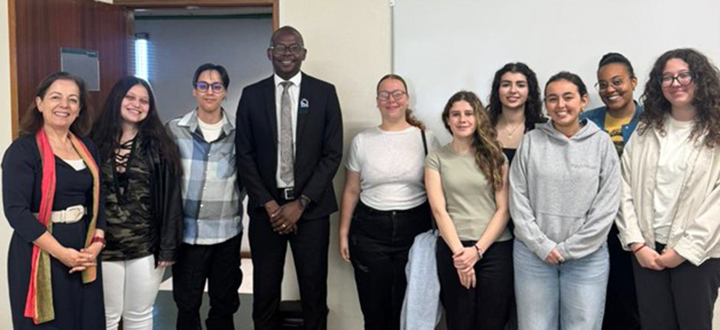
Dr Napjadi Letsoalo, together with students from the University of Aveiro
Dr Napjadi Letsoalo, Chair of the Department of Linguistics and Modern Languages in the College of Human Sciences, recently engaged in an academic visit to the University of Aveiro, a public university located in the Portuguese city of Aveiro, specialising in research and development. This scholarly exchange, which took place from 12 to 16 May 2025, was made possible through the Erasmus+ International Credit Mobility (ICM) programme and marks a significant step in strengthening academic ties between the two institutions.
As part of the Erasmus+ ICM initiative, Letsoalo was invited to deliver guest lectures across three levels of linguistic study, engaging students and faculty in critical discourses that reflect Unisa’s global footprint in language and cultural studies. His participation not only deepened scholarly collaboration, but also showcased the richness of African linguistic and cultural knowledge systems.
Linguistic analysis in political communication and democratic engagement
Dr Letsoalo’s visit included a first-year lecture themed Ambiguity in Political Discourse: Rhetorical Power and Democratic Implications, delivered to students of the Linguística Portuguesa III class under the guidance of Prof João Paulo Silvestre. Drawing from linguistic theories such as Leech’s Grand Theory of Meaning and Fillmore’s Frame Semantics, the lecture explored how political language can strategically harness ambiguity to appeal to diverse audiences while subtly evading accountability. The lecture used African political speeches as case studies and underscored the crucial role of linguistic analysis in political communication and democratic engagement.
Letsoalo engaged a third-year class in Articulatory Phonetics: The Place and Manner of Articulation of Click Sounds as part of Prof Maria de Jesus Cabral’s Linguística Francesa course. This lecture illuminated the complexity of click sounds in Southern African languages such as isiXhosa. Using descriptive phonetic analysis, Letsoalo elaborated on the unique velaric ingressive airstream mechanism and the sociocultural significance of clicks in African linguistic traditions. His insights sparked interest among students unfamiliar with these phonetic phenomena, opening opportunities for further phonetic and cross-cultural linguistic studies.
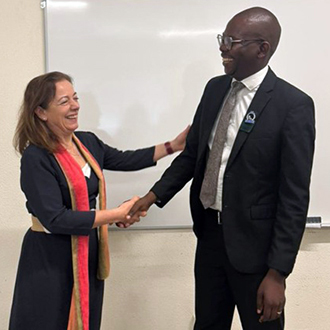
Prof Maria de Jesus Cabral, lecturer from the University of Aveiro in Portugal, with Dr Napjadi Letsoalo
The academic exchange culminated in a postgraduate seminar themed Aspects of Indigenous Astronomy in Sepedi Proverbs, hosted by Prof Rosa Lídia Coimbra under the Teoria do Texto module. This session delved into the oral traditions of the Sepedi and isiZulu communities, exploring how celestial bodies and their movements were historically encoded in proverbs and idioms. The seminar introduced the concept of Bolepa-Dinaledi, a theoretical framework for interpreting indigenous astronomical knowledge. It emphasised the urgent need for the documentation and preservation of such knowledge systems, highlighting their relevance in understanding timekeeping, agriculture, conception practices and cultural heritage.
Contributing African linguistic research to the global academic discourse
Letsoalo’s visit reflects the true spirit of the Erasmus+ ICM programme, advancing international collaboration, knowledge exchange and intercultural dialogue. Through contributing African linguistic research and pedagogies to the global academic discourse, this visit fostered mutual learning between Unisa and the University of Aveiro. It also offered students in Portugal rare and enriching encounters with African languages and traditions from a scholarly perspective. Looking ahead, this visit lays the foundation for deeper institutional partnerships between Unisa and the University of Aveiro. Plans for collaborative research projects, student exchanges and co-authored publications are already under discussion. For Unisa, whose mission includes the promotion of African scholarship on a global stage, this engagement represents not only academic outreach but also a powerful act of cultural diplomacy.
As Unisa continues to expand its international academic presence, such mobility programmes remind us of the transformative power of cross-border education. Dr Letsoalo’s visit is a compelling example of how linguistics can bridge cultures, preserve knowledge and inspire a new generation of globally minded scholars.
* By Nnana Martina Jege, Communication and Marketing Specialist, College of Human Sciences
Publish date: 2025-06-24 00:00:00.0


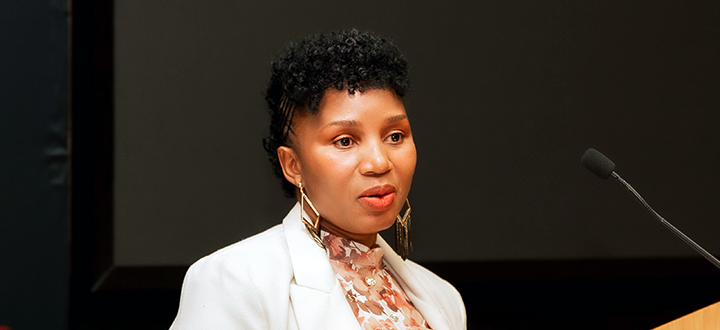 Wings of opportunity: Bringing drones into the classroom
Wings of opportunity: Bringing drones into the classroom
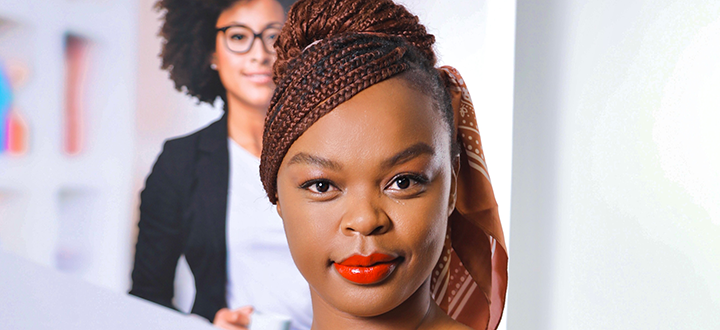 Visionary youth champion to address Unisa’s Innovation Festival
Visionary youth champion to address Unisa’s Innovation Festival
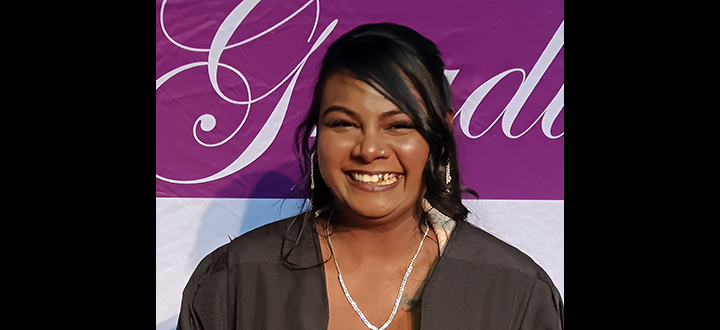 Finding the strength to persevere
Finding the strength to persevere
 Disability awareness at Unisa: Disability is not inability
Disability awareness at Unisa: Disability is not inability
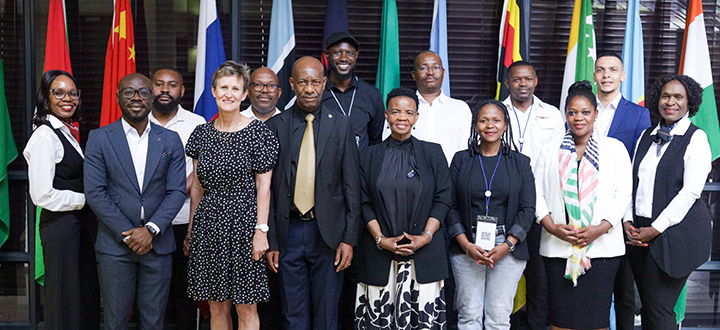 Unisa symposium shares knowledge on building SA's aviation economy
Unisa symposium shares knowledge on building SA's aviation economy